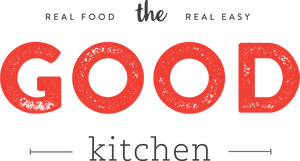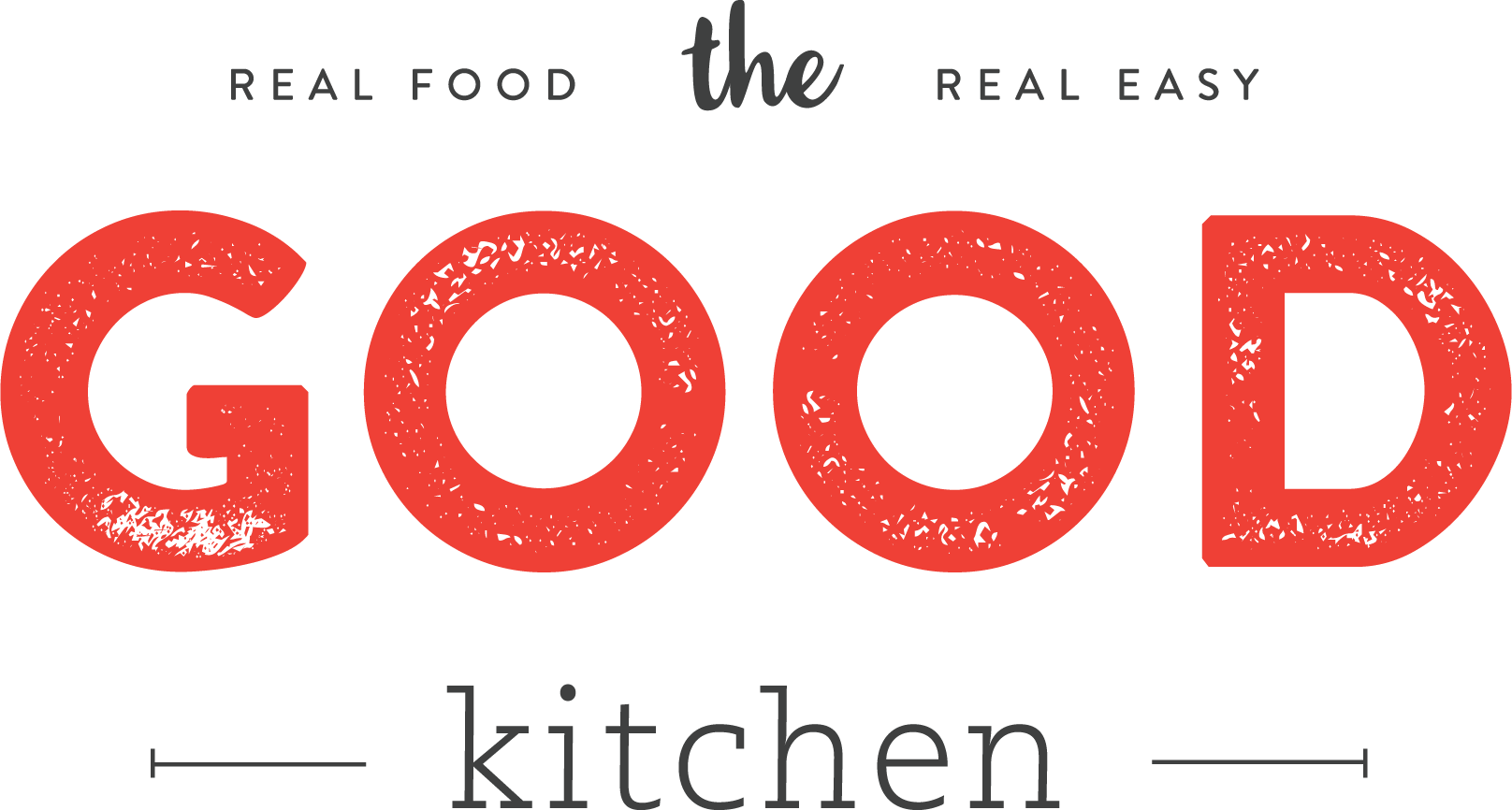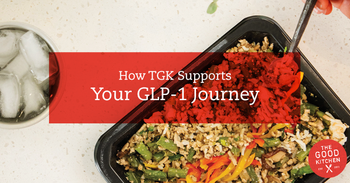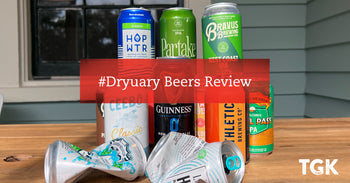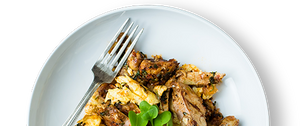Why Sourcing Matters
Director of Operations Kris Reid speaks with Peter Haas of CrossFit Downtown Winston Salem: why sourcing matters in this podcast / blog.
*Originally recorded late January, 2015.
The importance of sourcing. It's a hot topic. And rightfully so. Why does it matter where your food comes from? modPALEO Director of Operations Kris Reid sat down with Peter Haas of CrossFit Downtown Winston Salem to chat about... well, buying food.
In this conversation, Kris and Peter discuss:
• Shortening the food chain.
• Scale in sourcing.
• Nutrient quality.
• Seasonality and variety.
• Cost of real food.
Listen to the Interview below or Download a Transcript (PDF)
The interview is transcribed below in it's entirety, save for a few "clean-ups" here and there.
Peter:
All right, I'm Peter Haas and I'm joined today by Kris Reid. Kris is the director of operations at modPALEO. Today we're going to be talking about sourcing and food sourcing. Hi Kris. How are you?
Kris:
I'm good. How are you, Peter? Good to see you.
Peter:
Doing great, thank you. Yeah, having a great day, enjoying life. How is it with you? Are you getting adjusted over with things?
Kris:
Well things are calming down now. I could use a little more sunshine. It's been pretty cloudy here in Charlotte. I'm ready for some sunshine, but things have been good here.
Peter:
Good. I'm glad to hear that. Okay, Carter's been bragging about you and how you are definitely the go to person on sourcing. Thanks for taking the time to sit down and answer my questions. We'll go over a lot of sourcing topics that people have been asking about. Okay?
Kris:
Okay, cool.
Peter:
Great. How would you define sourcing? I kind of have an idea of it, but when you talk to people about what sourcing is and why it matters, what is sourcing?
Kris:
I think that there's a lot of depth there. When people think about buying food, they think about going to the grocery store primarily for their main food items to cook. When I talk about sourcing, I'm talking about a direct relationship with the person or the company that grows the food. We're not working through a distributor or through several hands down the food chain. I have a direct connection with that food source. When we're talking about food sourcing, we're really talking about having a relationship with a farmer or a purveyor of artisan food. That's what we're talking about I think when we're talking about sourcing.
Peter:
Okay. Directly how the food gets from whoever is producing it, going through any number of intermediates or other hands. Then how it's getting to the table of the end person. Is that kind of ...
Kris:
Correct. Just shortening the food chain basically.
Peter:
Shortening the food chain. Let's go ahead and roll into the since you're already hinting at it. What are some of the different kinds of sourcing models? You mentioned the grocery store one, you mentioned what you do. Are there sourcing systems you would characterize?
Kris:
I think for a large company, it different than it is for a person. As an individual or a household some of your resources for sourcing would obviously... First would be your farmers markets. When I moved to Charlotte from Los Angeles, that was one of things I felt that there was not a lot of continuity in the markets here. They were hard to find, they weren't open seven days a week, the hours were pretty much Saturday morning on markets. That kind of creates some barriers for people that are trying to source locally because the farmers market's only have that Saturday morning hour with the exception of Atherton market and there's a couple of other that have extended hours.
The second place that a family or household would source from is either a community garden or their own garden. Where you have a lot more control about what you grow and varieties. That's kind of an interesting way to source is through a community gardens. There's a large community here in Charlotte that does that. The farmers markets, the community gardens and then the last one I would say would be your community supported agriculture programs, your CSA's. Where you sign in... Basically you're signing up for a program where you're getting box a week, or whatever their program is, of fresh produce or proteins or whatever the program is. For an individual, it's a lot different than it is for a business. You multiply that times 500 meals. We're not doing one meal, we're doing hundreds of meals.
When you get up to this level, it changes things a little bit because it's not reasonable to go to the farmers market and buy groceries for 500 meals. That's not... I certainly wouldn't want to do it. That'd be pretty challenging. We do have some chefs that do that actually. That buy very similar to that model. What we do is we work directly with co-op's and with purveyors such as Poultry Junction, Hickory Nut Gap, who their philosophy of animal husbandry or their sustainability approaches with food match our philosophy as a company. We build that relationship, we source directly from them, they deliver it to us. We're putting in an order once or twice a week for the proteins and similarly for the produce. The produce is coming from ECO which is Eastern Carolina Organics. They're buying from several organic farms throughout the Piedmont all the way out to the coast. They're bringing that in like a food hub and then distributing it out with a direct relationship to the customer.
Peter:
Got you.
Kris:
Much different than if you were a household or an individual.
Peter:
Sure. Okay. Those are some really good examples of what you would describe as locally sourcing?
Kris:
Mm-hmm (affirmative).
Peter:
The different options for an individual. Okay. As opposed to just somebody just going to their local Harris Teeter or their local big box grocery store or however you want to characterize that. We're doing stuff like that. I'm sure a lot people are just like that's their only concept of ...
Kris:
Their only source.
Peter:
Yeah, their only resource of how to procure food. Why do you think ... I guess the big question is why do you think sourcing matters? How do you think that effects food quality and then ultimately people's health?
Kris:
Again, that's such a huge topic. There's a lot of depth there. I think that the reason that sourcing is important, one I feel very strongly about bridging the gap. I feel that connecting a person to a farm, a farmers market, a rancher, whatever it is that's producing the food. Enclosing the gap brings a certain integrity to food. By sourcing closer to ... purveying food closer to there source, you're getting the most nutritional value out of that food. When vegetables are cut, that vegetable starts to die immediately. The longer that that vegetable is going through the process of being wash or radiated or whatever it is in these packing houses. Then distributed and then on a ship or on a truck or on a train or however they're getting this food all over the country and the world. There's this transportation time that that produce starts to break down and becomes really just cellulose. The vitamins and the nutrients and everything that's wonderful about that food kind of dissipates and you end with this cellulose.
Tomatoes are a great example of that. You a tomato in the winter, a lot of them are coming from down in Mexico or what have you. That doesn't taste like tomato that you'd buy at the farmers market in the summer. The reason is because it's not. It's not the same thing. It's doesn't have the same nutritional value. Sourcing close to ... Purveying close to the source is providing the most nutrient dense food possible. You're bridging a gap, creating a relationship with a farm, you're getting nutrient dense food. You're also really making a statement when you're sourcing that way because you're saying I vote for this with my dollar versus I vote for a subsidized product at the grocery store with my dollar. By doing that, you're saying I support what this farmer believes as the right way to raise animals or what this farmer believes is the right way to raise vegetables. I want to be part of that solution for the environment and for my community and for my own well being as a person and for my families health.
Peter:
Got you.
Kris:
Pretty deep. There's a lot going on with the question.
Peter:
Yeah. I know I've talked with other people that are really passionate about this. You can definitely go really deep with the topic.
Kris:
Right.
Peter:
Specifically ... You feel like with the vegetables it really addresses ... It definitely effects the nutrient quality on the vegetables when you're locally sourcing it and getting it fresh as opposed to extremely not fresh. Do you feel like sourcing locally, sourcing quality effects the nutritional basis for meats?
Kris:
That's kind of a different animal, no pun intended. Animal proteins, they're made up of what they eat. Just like we are made up of what we eat. Sourcing close to your community gives you a little more control or understanding at least of what these animals are eating and how they're being treated. Not to get metaphysical or [inaudible 00:09:43] at all but I really believe that food has a certain vibration. If an animal is treated well and an animal eats well, that product in the end is going to be of much higher value to your body.
Peter:
Yeah, I would totally agree. I really appreciate getting locally sourced meat. I feel like ... Especially if they've had a quality environment and quality food then I definitely get a much higher quality product, not just with meat but with eggs too. I can tell, I've gotten those farm fresh eggs before and you can definitely tell the [creatine 00:10:20] content is so much higher in them. The yolk looks so much better. I think I told somebody one time it was worth it to me because it was essentially like getting rocket fuel as opposed to just regular gas.
Kris:
Right.
Peter:
From a nutritional perspective.
Kris:
The animals are the same thing. The research has not been, I don't think, huge on the end of supporting this idea that I'm talking about. I think that a lot more research needs to be done. We do know that grass fed beef has high omegas and, like you said with eggs, you do have a higher vitamin content in a yolk that's free range and eating bugs and eating a natural diet versus eating a soy or corn based diet. There's a lot more research that needs to be done but clearly much better for you. When you have that close relationship with somebody in your community that's growing this food and this product, you have the ability to go out to their farm and actually see their operation and say, "Yeah, I'm okay with this." Or, "No I'm not."
You roll into a grocery store and you buy some steak in a package, most of the meat in the meat department doesn't even have bones anymore. It doesn't even replicate what real meat looks like. It's without it's skin and and without it's bone and it's fabricated in a way that removes people so far from the food, but you buy that package, that styrofoam package with the plastic over the top of it. You don't know what that animal ate, you don't know how that animal was treated. You don't know how the workers were treated that cared for those animals. There's just a lot to the story important to me as a consumer and certainly as a mother and what I want my child to eat and what I want to feed my family and certainly what I want my community to be eating. Which is one of the reasons I came to work for Modpaleo because I believe in those kinds of products that are serving people well.
Peter:
Absolutely. I think it's really interesting about how you can get into concepts of social justice and animal welfare purely by talking about what your food choices are. Then when that can overlap with nutrition, that's amazing. One of the big things for me is I just think, and I'm not a gourmet chef, but I can get so much better results out of my ... In terms of taste and flavor from sourcing local and cooking and staying even with very simple ingredients. I made something the other day with basically just fried eggs and tomatoes and it was amazing because they were all very fresh, just salt and pepper, maybe a couple of other herbs and it really wasn't anything super complex, but the raw ingredients definitely make a world of difference.
Kris:
They say that the best chefs, they start with the best ingredients and try not to screw them up. That's really ...
Peter:
Absolutely.
Kris:
That's what it's all about.
Peter:
Absolutely.
Kris:
It is, it's a lot of work. It's a lot of work to find these farms and these resources and even to go to the farmers market. It's time consuming. Personally, I don't see it as a chore. I really enjoy that experience, but there's a lot of people that just don't have the time. I was in Publix yesterday, I need to buy some paper goods and there just happened to be this Publix on my way home and I stopped in there. I was just so amazed by how many convenience foods they sold. Half of the store I felt like was convenience foods. Then you've got to think why are they doing that? The reason they're doing that is because that's the market. People are too busy to shop, purvey, cook. They're feeding that market and unfortunately what they're feeding them is a bunch of processed crap. It's hard to see it. It really is.
Peter:
I hear you. How about you take me through this. If I was your friend and I told you I wanted to increase the quality of my sourcing and I wanted to start buying more local. How would tell me ... Just to get started, how would tell me to go about doing that? In terms of me going out and sourcing food? What would tell me to do?
Kris:
There's a lot of great resources online. Again, I think your best resource is going to be a farmer. I think the best resource is to make a connection because from that connection you're going to find another connection. Making relationships with farmers is very important. Tapping into culinary groups or guilds is very important. Tapping into online directories, there's harvest ... What is it? Sustainable Table and LocalHarvest.org. Those are all great places and I think that that's where I would I start people if they were actually looks to go out and purvey themselves. Then most of them have to learn how to cook it took. That's the next challenge.
I feel like there's a lot of people that want to do the right thing, they want to feed their family the right thing. They go the farmers market, the buy $100 worth of these beautiful vegetables and meats. Then they get home, they put them in the refrigerator and then Monday morning rolls around and they're off to the races. Everyone's too busy to cook dinner. A week goes by, now it's Saturday morning again and all those vegetables have gone rotten in the refrigerator. The justification to go back out to the farmers market and spend another $100 just isn't there.
Peter:
I hear you. I totally agree.
Kris:
It's just easier to go over to Publix and buy some additive, loaded hummus and crap. The hummus thing and all that when I was looking at it yesterday. It all seems healthy, they really try to present it that way. It's like pictures of the vegetables on the hummus. It's all over processed. You look at the ingredient list and you've got 15 ingredients in hummus. Hummus is made of four ingredients. It's crazy. What I would say to a friend is if they wanted to start sourcing local, they would need to go the farmers market and starts those relationships now. Then they would need to learn how to cook and take the time and fight for the time. That's discipline.
Peter:
Which we will definitely cover in another interview. Yeah, looking forward to that one too. That's great advice, I've done that. That's stuff I've done in the past. Farmers markets, I actually went out and I connected with a couple of farmers, went and visited their operations. I thought that was awesome. It does take time, it is a little bit of a learning curve. Say I didn't have that kind of time and I wanted to find somebody or some company even that did something like ... That took the time to talk to farmers and talk to sourcers and talk to somebody ... Verifying the integrity and the quality of their food, that would be somebody like you, right?
Kris:
I think that Modpaleo definitely would be able to fit that bill. That was one of the reasons I came to work here, like I said. I really believe in their company philosophy and the integrity that they carry as a company. They're not just telling people that they're doing this, they're really doing it. The reason that they hired me, they hired me for a couple of different reasons, but one is I had been well networked into the local food community over the past nine years of my being in Charlotte. That's just helpful to have somebody that can help you be connected to more providers of food. We work together to find the right resources. To bring in the freshest possible quality ingredients. We have a very talented chef that uses those products and makes some pretty fantastic meals.
It definitely eliminates the time factor for a customer that doesn't really have that time to shop. Certainly, the cooking time. I think something else that's really unique about the product that we offer is that we have the reduced oxygen packaging, which is this plastic over the top of the food that's put under pressure, sucks down to the food, which gives us a longer shelf life because it reduces the the oxygen in the package. We get a really extended time on our food so people that buy it have several days to eat it. It's not like it's going to to go bad tomorrow when they receive it, which I think is a huge benefit of eating and buying fresh food.
The purveyors that we use are fantastic and well sourced like you said and a lot time and investment has gone into building those relationships and sourcing that food. Making it happen here on a weekly basis, it's a lot of food that needs to roll in here, it's a lot of logistics. We do all that. Once we bring the food in, it's prepared in a way that's very unadulterated. I think it's very close to it's original form in every way. There's not a lot, obviously there's not additives or preservatives, no added sugar. We don't even have sugar in our building. It's very special what we do. It's providing the end user with this very nutritionally dense, beautifully sourced, fantastically prepared, just beautiful meal for their self and for their family.
Peter:
That's awesome. I love it. You guys definitely do ... Obviously went out and found farmers that you believed in what their process was and how they treated their animals or how they raised their vegetables. You established relationships with them. Not only established them, but I'm sure you guys have ongoing relationships with these individuals and organizations.
Kris:
Absolutely.
Peter:
Seasonality is one thing, that definitely effects sourcing from July to December.
Kris:
Oh, it's a chef's logistical nightmare. You know what I mean? You're not able to just depend on tomatoes 12 months out of the year or butternut squash 12 months out of the year. There's a lot of variables there that have to be considered for a chef working in this kind of establishment but certainly ... Yeah, this isn't a place where a big box truck rolls up and unloads all the food and then we go to town. This is a place where half a dozen purveyors are coming in throughout the week bringing herbs, vegetables, meats, eggs, whatever the product is that we're sourcing from them. They stop in the office and we chat for a while about what's going on with them and share some stories. It's a connection. It runs deep. It's not making a phone call to Sisco and having them bring us a truck for tomorrow where we have no idea where that food came from, no relationship with the people that grew it. It's just dropped off on our loading dock and we cook it. It's much deeper, much more integrity than that.
Peter:
That's awesome. Yeah, I love that. I love that about you guys, I really do. Well thank you Kris for taking the time to talk about the sourcing. I definitely learned a lot from that. I think other people will also. Looking forward to chatting with you more about other topics. Talking about the cost of food and the cost and quality of food. Like you were talking about before, cooking. Convenience factors, all the things that go into peoples consumption of food and how it can ultimately effect their health. Thanks again and I'm looking forward to more conversations.
Kris:
All right Peter, you have a great day.
Peter:
You too. Bye.
Kris:
Bye.
